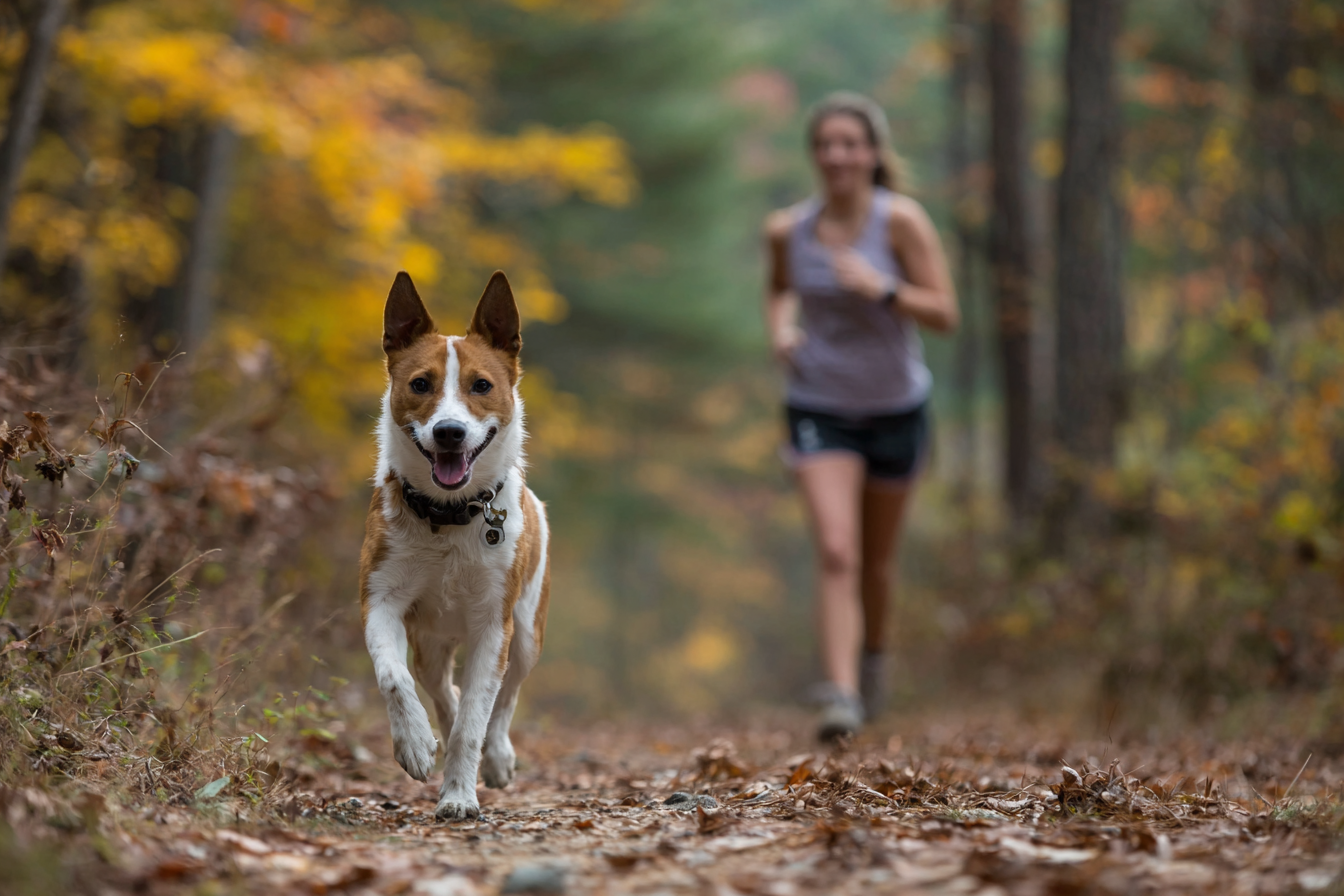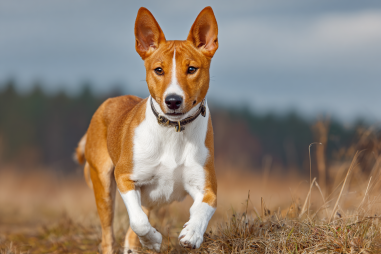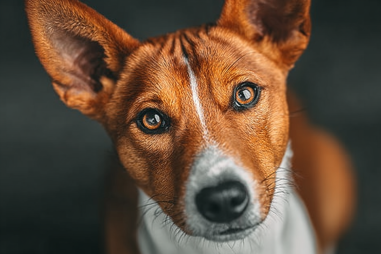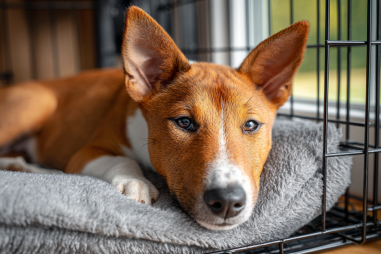Basenjis are known for their unique personality and energetic nature, making them a fascinating breed to own. However, their activity needs are often underestimated by new dog owners. These dogs require a well-rounded exercise routine that not only caters to their physical energy but also stimulates their sharp minds. Understanding how to properly exercise a Basenji is essential to ensuring they stay healthy, happy, and well-behaved. In this guide, we’ll explore the exercise requirements of Basenjis, including how much activity they need, the types of exercises that work best, and important safety tips to keep in mind.
Basenji Energy Levels and Instinct
Basenjis are a breed with high energy levels, inherited from their hunting and scouting ancestry in Central Africa. Unlike some other breeds, their energy comes with a strong instinct to stay alert and engaged. These dogs are known for their speed, agility, and independence, traits that reflect their working-dog heritage. Because they were bred for hunting in challenging terrains, Basenjis have a lot of endurance and a natural urge to explore their surroundings.
This instinctual drive means that Basenjis need regular outlets for their pent-up energy. They are not content with just lounging around; instead, they crave physical activity and mental challenges to maintain balance. When their energy goes unused, they might exhibit behaviors such as excessive barking, digging, or becoming restless and destructive.
Recommended Daily Exercise Routine
To keep a Basenji healthy and happy, a consistent daily exercise routine is essential. On average, Basenjis require about 60 to 90 minutes of exercise each day. This can be broken down into two or three sessions spread throughout the day to suit both the dog’s natural rhythms and your schedule.
Morning exercise helps burn off excess energy early in the day, making your Basenji calmer and more relaxed during the afternoon. A second exercise session in the evening is equally important to help them wind down and avoid late-day restlessness. For younger or particularly hyperactive Basenjis, you might even include a short midday activity or playtime.
Consistency and variety are key. A flexible but structured exercise plan prevents boredom while ensuring your dog gets enough physical movement to stay fit.
Types of Physical Activities and Games
Basenjis thrive on a mix of rigorous and engaging activities that cater to their athleticism and intelligence. Some of the best activities for Basenjis include:
- Brisk walks and hikes: Allow your Basenji to explore new environments safely while getting cardiovascular exercise. On leash or in a secure area, brisk walking provides both physical and mental stimulation.
- Running and sprinting: Basenjis are natural sprinters and enjoy short bursts of fast running. A fenced yard or dog park is an ideal place to let them off-leash and run freely.
- Agility training: These dogs excel at agility courses due to their speed and nimbleness. Running through tunnels, jumping over hurdles, and weaving through poles provides excellent exercise and strengthens your bond.
- Fetch and chase games: Use balls, frisbees, or toys that your Basenji can chase and retrieve. This type of play taps into their prey drive and satisfies their natural instincts.
- Interactive toys and puzzles: Physical toys combined with mental challenges, such as treat dispensers or puzzle feeders, can keep Basenjis entertained for longer periods.
Regularly rotating activities keeps your Basenji’s interest alive and prevents exercise monotony.
Mental Stimulation Alongside Physical Activity
Physical exercise alone is often not enough for highly intelligent breeds like the Basenji. Mental stimulation is just as important to help them use their problem-solving skills and avoid boredom. Incorporating mentally challenging tasks into their routine can reduce destructive behavior born from frustration.
Some ways to provide mental engagement include:
- Training sessions focused on obedience or tricks
- Interactive puzzle toys that require problem-solving
- Nose work and scent detection games
- Variation in walking routes or introducing new environments
- Socialization with other dogs and people to improve cognitive skills
Short but frequent training sessions also foster better behavior and responsiveness, making your Basenji a joy to be around.
Managing Exercise Needs in Different Life Stages
Exercise requirements for Basenjis vary throughout their life. Puppies, adults, and senior dogs all have distinct needs:
- Puppies: Basenji puppies have boundless energy but their growing joints require low-impact activities. Short play sessions combined with gentle walks and basic training work best. Avoid strenuous exercise or repetitive high-impact activities as it can harm developing bones.
- Adult dogs: Adult Basenjis need the full recommended 60 to 90 minutes of daily activity. This is the stage when you can safely increase intensity, introduce agility training, running, and more complex mental challenges.
- Senior Basenjis: Older dogs might slow down but still need daily exercise to stay mobile and healthy. Shorter, gentler walks and low-impact games, along with mental stimulation, help maintain their quality of life without overexertion.
Adapting exercise routines as your Basenji ages ensures they receive the right level of activity without risking injury or fatigue.
Exercise Safety Tips for Basenjis
Keeping your Basenji safe during exercise is just as important as providing adequate activity. Here are some essential safety tips:
- Secure environments: Basenjis are known escape artists due to their curiosity and agility. Always exercise them in securely fenced areas or on a leash to prevent running off.
- Hydration: Provide plenty of fresh water before, during, and after exercise—especially during hot weather—as Basenjis can overheat quickly.
- Avoid extreme temperatures: Because of their short coat, Basenjis are sensitive to both cold and heat. Exercise during cooler parts of the day during summer, and use protective gear in winter if necessary.
- Warm-up and cool-down: Begin exercise sessions with light activities to warm up muscles and end with slower walks to cool down, reducing the risk of injury.
- Watch for signs of fatigue or distress: Be attentive to your dog’s behavior. Excessive panting, limping, or reluctance to continue exercising are signals to stop and rest.
Being mindful of these precautions helps ensure your Basenji stays safe while enjoying their exercise time.
Basenjis are truly remarkable companions who flourish when their energy and intelligence are properly engaged. By providing a balanced mix of physical and mental activities tailored to their age and personality, you’ll enjoy a happy, healthy, and well-behaved dog. Remember, a well-exercised Basenji is a content Basenji!







